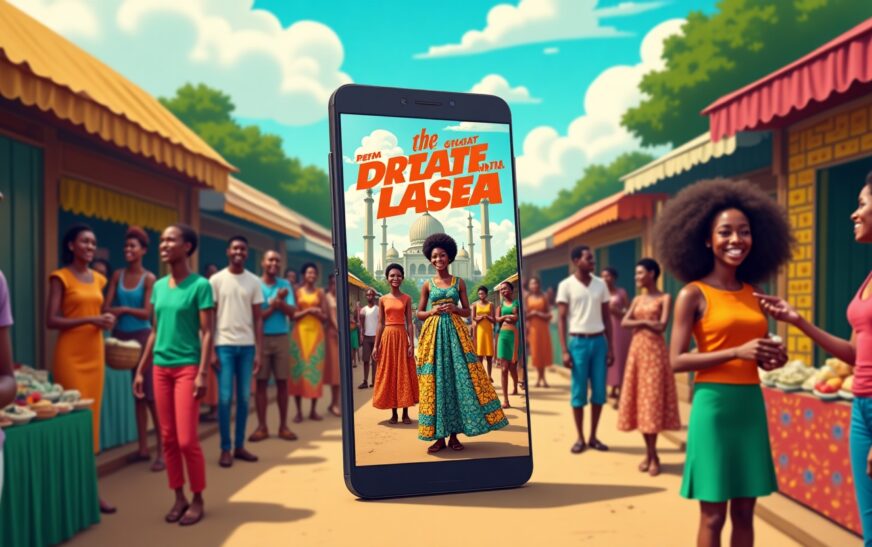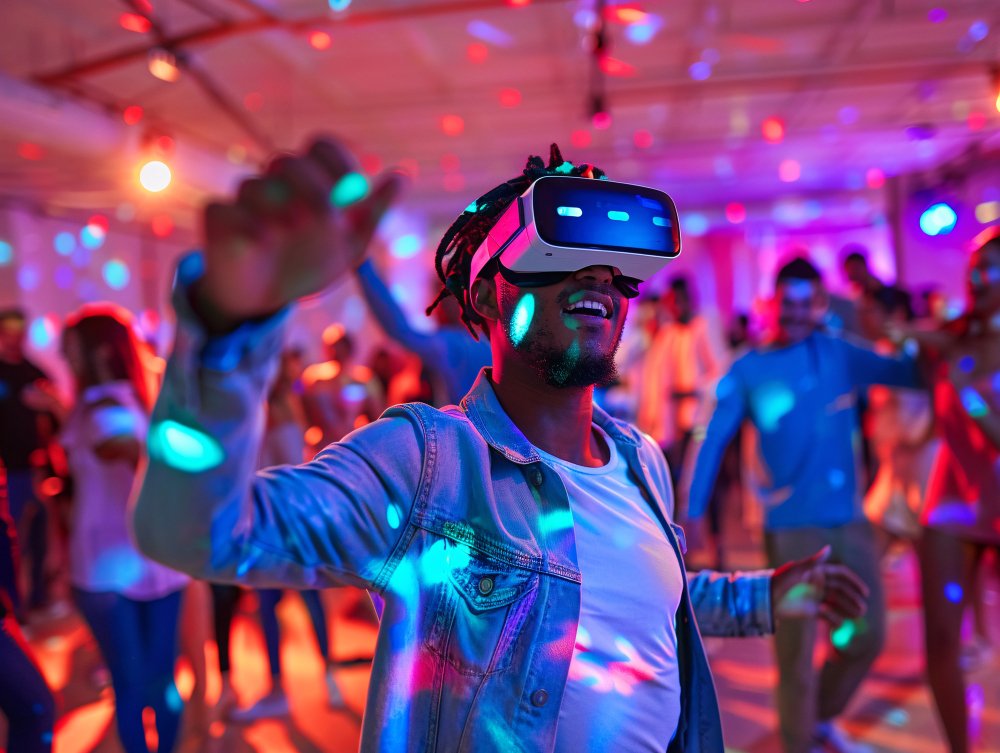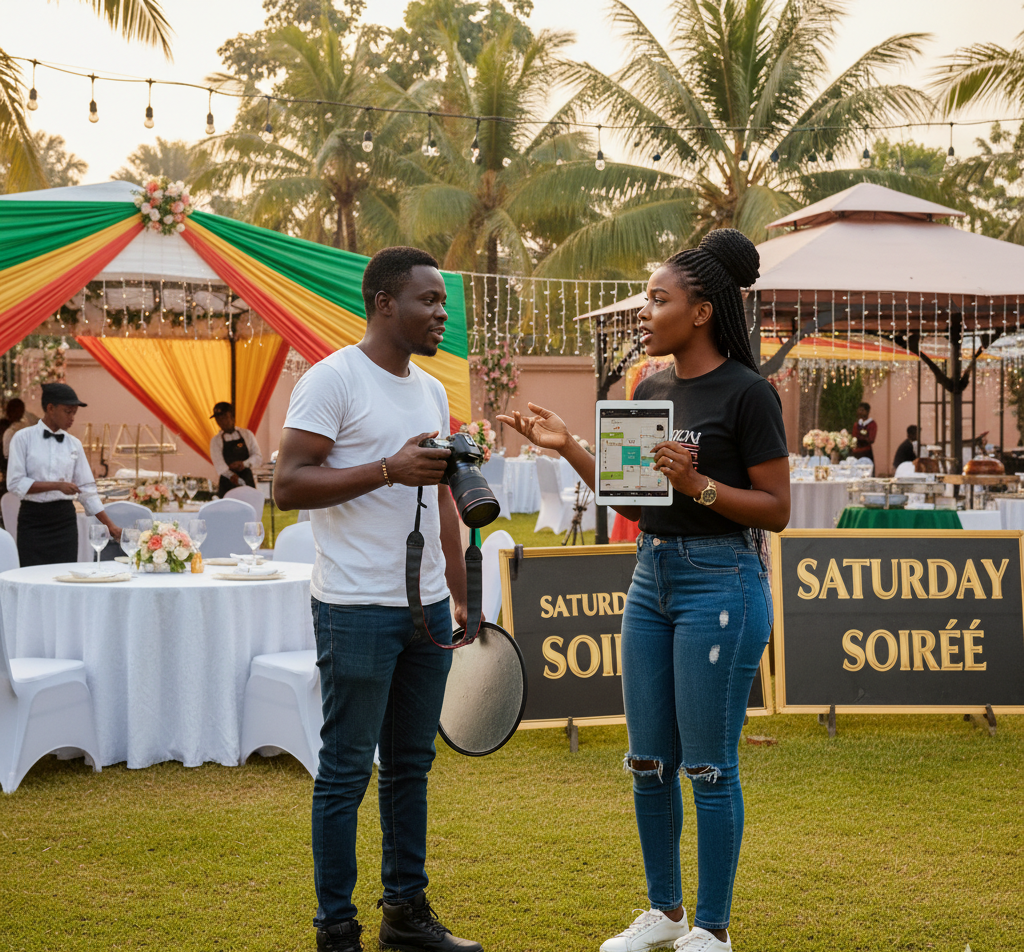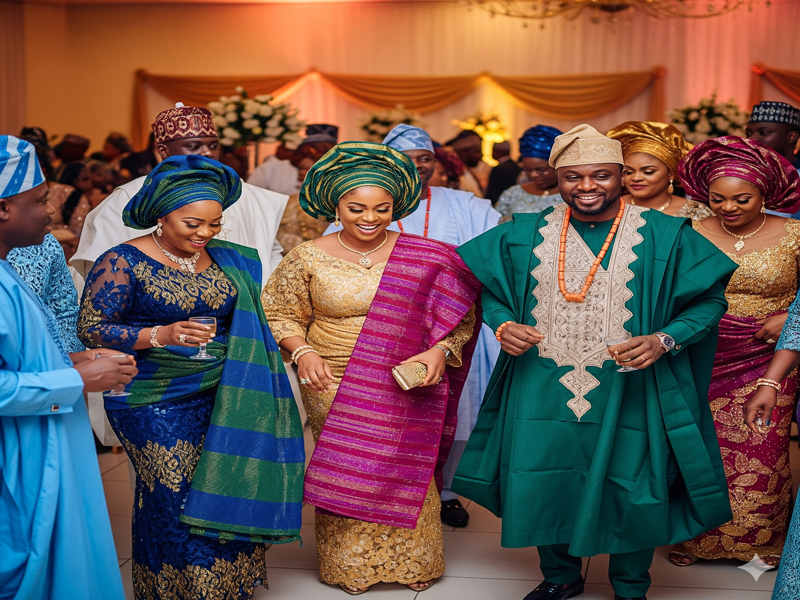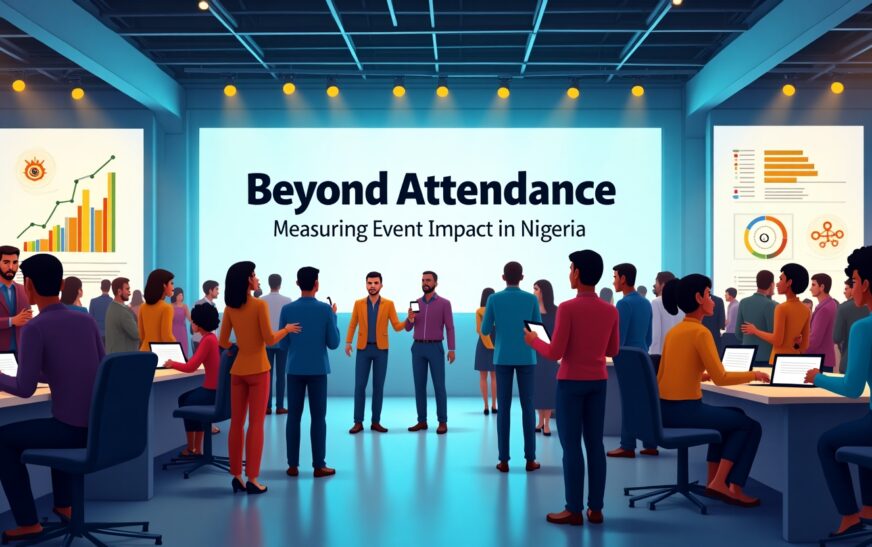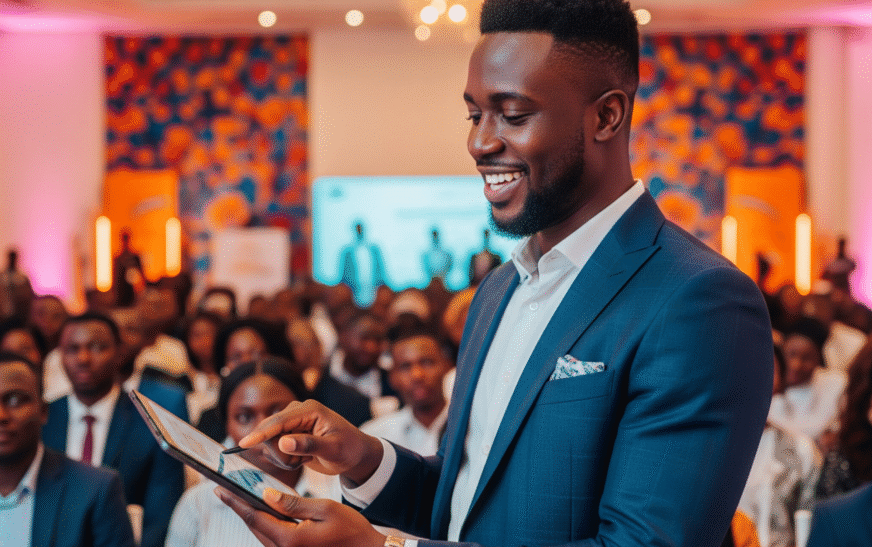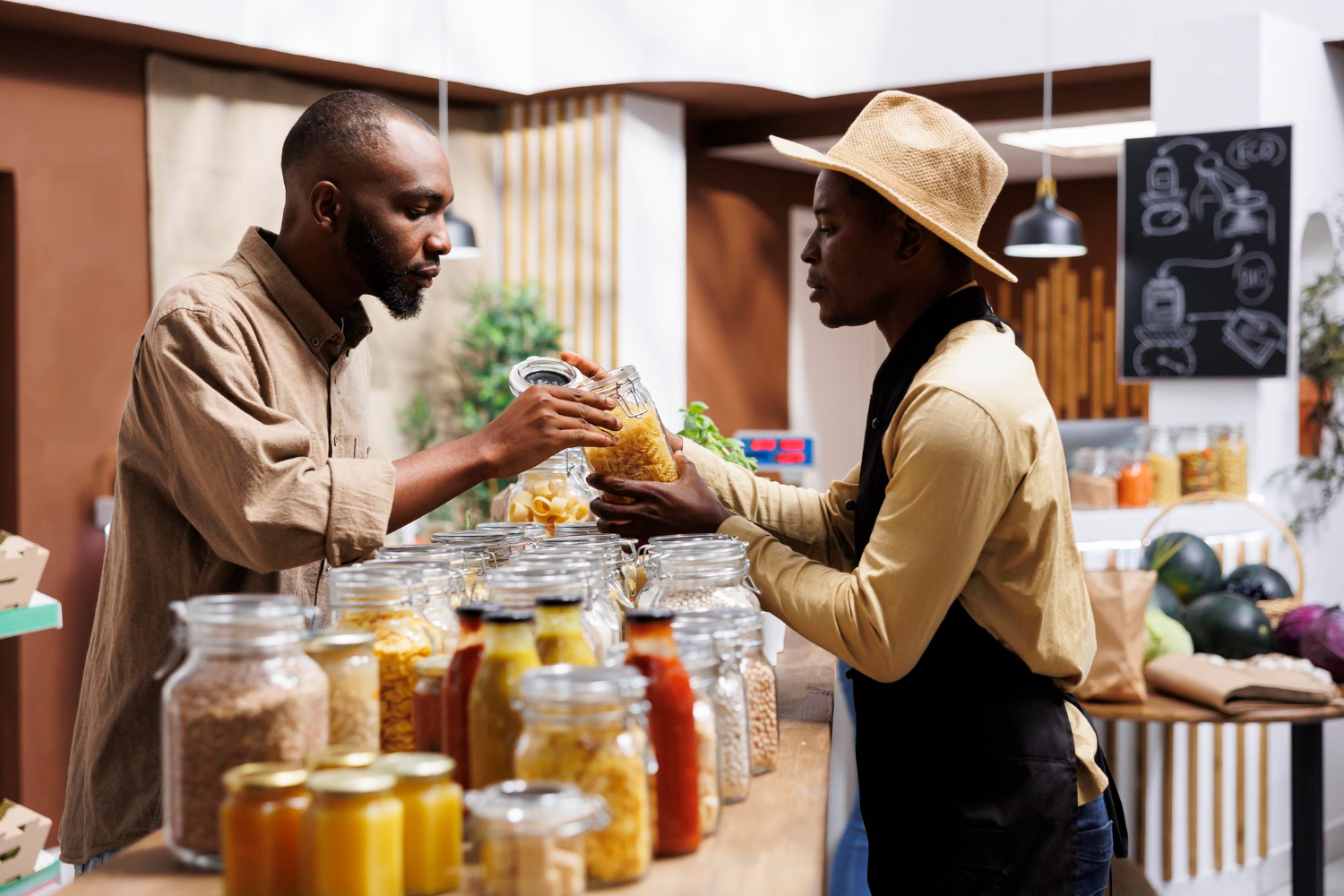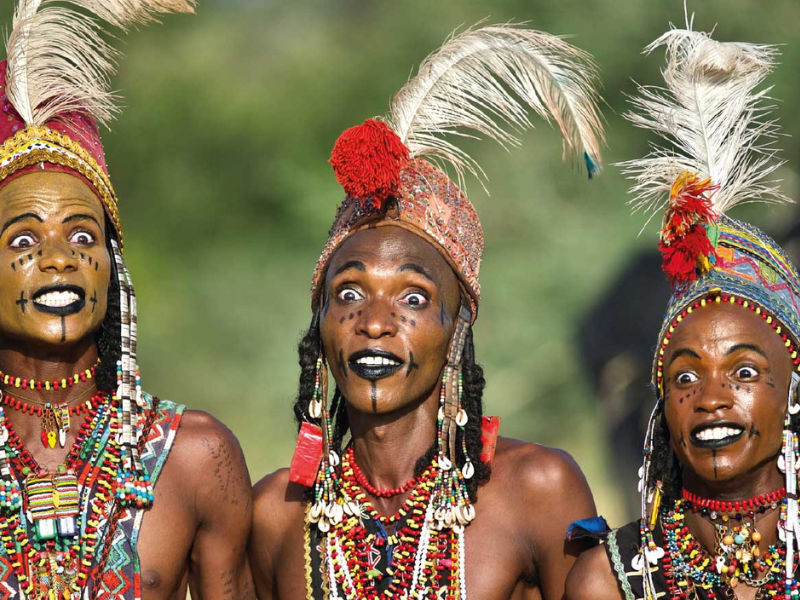Imagine using the power of a well-optimised mobile event marketing campaign to reach your ideal audiences anywhere they are through their mobile phones. Event managers who are not considering this are missing out on a great deal.
Nigeria has over 150 million cellular connections and 107 million internet users, according to reports, making mobile phones the platform of digital engagement. Resultantly, it is changing how Nigerians discover, share, and participate in events.
The interesting thing is that in most places where there are cellular connections, especially in cities such as Lagos, the commercial nerve centre of the country; Abuja, the federal capital territory, FCT; Port Harcourt; and many other places with rapidly growing youth populations, people are scrolling, clicking, liking and sharing content on the go. These are activities happening on platforms such as Instagram, Facebook, TikTok, and X (Twitter), creating a huge connectivity network across the country on the go.
More interestingly, this mobile landscape presents a huge opportunity to event managers who understand and can leverage this gold mine to get their messages to the faces of those who matter through the use of mobile-optimised event marketing wherever they are.
In this piece, we shall explore the key elements of mobile event marketing and examine how event managers in Nigeria can leverage mobile marketing tools and strategies to achieve maximum impact with their marketing efforts. Discover also common mistakes to avoid when running mobile-optimised event marketing.
Let’s begin by considering the key elements that must be involved to achieve mobile-optimised event marketing.
Key elements of mobile-optimised event marketing
- Your mobile address (website): To achieve the set objectives of a mobile-optimised event marketing effort, certain key elements must not only be considered but also be put to use. One of which is creating an address online, or a mobile address. It’s a location on the web where prospects can, with a few clicks, get any information they want about you or the event. It’s called a website – a functional, responsive and fast-loading one for that matter. You may also decide to dedicate a special page containing the most important detail that they need to know at a glance for the event you are marketing.
- Social media platforms: to achieve a mobile-optimised event marketing campaign, it’s not enough to have a website and then rest; it is just basic. The next is to go ahead and create your presence on relevant social media platforms such as Facebook, Instagram, TikTok, etc. This is to enable you to reach your audiences that are on these platforms and eventually attract them to your event. Additionally, clicks from that platform will inevitably land them on your website or landing page creating a network or connectivity with your identity and insinuating desires and interests.
- Content creation and messaging: This is a very critical element in mobile event marketing. It entails the crafting and creation of not only engaging but also concise, well-planned and customised messages for your audiences and all platforms. The messages can be in the form of photos, text and videos. However, you have to ensure that all the content resonates with the audiences and is easy to read and navigate with very clear-cut calls to action. With this, there is a likelihood that they’ll follow the instructions to visit your website, register or even invite others by sharing your content with them.
- Integration of mobile apps: This is also a great element when one wants to actualise a successful mobile-optimised event marketing. Although it’s gradually gaining prominence and acceptance in Nigeria, it is an integration that can boost mobile visibility and provide seamless navigation. For example, if one is organising, say, a tech conference in Nigeria, the organisers can leverage the mobile event app to make it easier for participants to navigate and participate in the conference and as well include exhibitor listings, venue maps, and instant alerts for session reminders.
Influencer collaborations and social media for mobile event marketing
Collaborating with thought leaders and/or celebrities in specific niches, especially on social media where Nigerians have access, has proven to boost better engagement with events or any other campaigns. For example, Temu an e-commerce platform trying to penetrate the already filled Nigerian market is using comedians and other influencers to draw emotional attachment to their app. Another example is GLO, a Nigerian telecom giant that partners with celebrity actors, comedians and musicians to promote new services and events. They accomplish this by using captivating, mobile-friendly video content that will reach as many young, tech-savvy Nigerians as possible.
Although these strategies promote increased awareness for both events and services, it should be noted that they have to be innovative, planned, deliberate and shared on the right platforms that match their features. For instance, you have to focus on platforms with greater engagement based on the content you are posting. Instagram and TikTok, including Facebook, have proven to be great for visual engagement, such as videos, while text and photos or videos do well on X (Twitter).
Mobile marketing tools, personalisation and interactive experiences (AI)
There are essential mobile marketing tools that should be considered. They help to shape mobile experiences; they enable the mobile-friendly marketing strategies to flow seamlessly. Among a vast number of available tools, these three are well used in Nigeria, namely, mobile-friendly email marketing, the use of event apps provided by Eventbrite and other third-party apps and platforms and SMS campaigns.
Interestingly, seeing the immense importance of increased engagement during events, have you noticed that some social media platforms, such as WhatsApp and Apple, recently added a new event feature that enables users of their products to increase visual engagement by using this feature during events?
The SMS campaigns have been very effective in the country due to the rapid phone connectivity and penetration to rural areas that were initially denied. This strategy involves the use of SMS (Short Message Service) to send messages to subscribers who were initially captured by other means. The messages may be reminders for the upcoming event or a follow-up, updates or announcements for logistic arrangements.
In addition, the mobile-friendly email strategy involves sending personalised emails to prospects whose email details had been captured using other means. Since Nigerians can view their emails via their mobile devices, personalised emails can go a long way to create emotional ties and interest that may be needed to initiate further actions. A message such as “{DEAR EVENTPAADI}” makes you feel important and may make you want to read further.
Common mistakes to avoid in Mobile-optimised event marketing
There are common pitfalls that event professionals should avoid during a mobile event marketing campaign; some of them may include ignoring local culture and content and trying to replace it with a Western version. They end up not syncing with the messages.
Additionally, not customising ad messages or content to the location of service may result in very bad engagement. Campaigns should be made to reflect the location’s preferences, interests and even language, such as regular slang. For instance, running a mobile-optimised event marketing campaign meant for an urban centre like Lagos for a rural location.
Finally, using poorly designed graphics and poorly scripted videos and ignoring proper video and graphics formats can also hamper mobile event marketing efforts a great deal. It is advisable to test all content on mobile screens before they are published so as to confirm quality and acceptability.
In conclusion
Mastering mobile-optimised event marketing is critical for Nigerian event professionals and audiences in the digital age. Using techniques such as SMS campaigns, emails, apps, and influencer collaborations, organisers may increase visibility and engagement. Understanding the local culture, personalising content, and avoiding the enumerated mistakes are essential.

